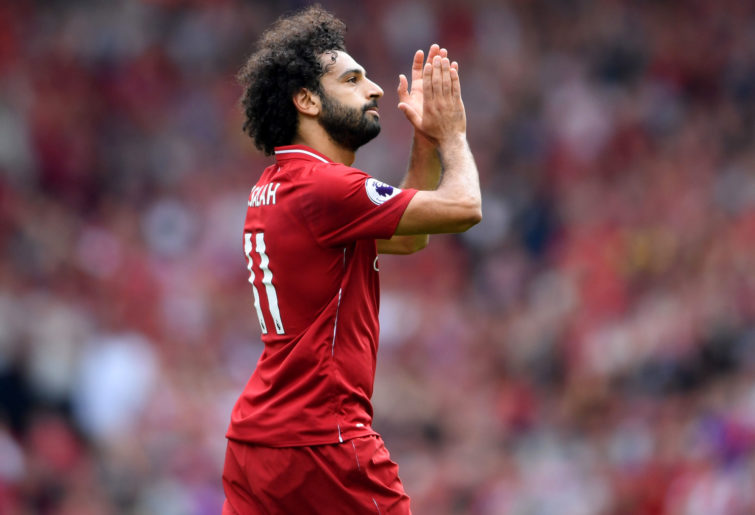'A great night': Gunners shoot Kai high at top of standings after obliterating Chelsea for biggest win in 94 years
Kai Havertz has scored twice against his former team and Ben White also got a brace as Arsenal brushed aside a dismal Chelsea side…
Former Liverpool, Newcastle United and England player Peter Beardsley has been stood down and suspended from all football-related employment after a series of racist comments directed towards black players were made public earlier this year.
The English Football Association acted briskly on the 20th of September by banning the 58-year-old from all involvement in the game for a period of 32 weeks.
The ban followed substantiated accounts of racist and offensive language used in reference to black players under his tutelage in Newcastle United’s Under 23s squad.
Beardsley was accused of breaching Football Association rule E3 on three separate occasions and in each case the governing body found the claims to be proven.
As such, the man possessing a total of 59 full international caps and near 250 career goals leaves the game temporarily; in utter disgrace and labelled a bigot by many.
The FA has compelled the fallen hero to a face to face education course and expressed disappointment at the fact that the Englishman refused to apologise for his comments nor withdraw his allegations that the players involved fabricated their claims in an effort to gain financially.
With recent Premier League memories of Raheem Sterling being taunted and abused by Chelsea supporters at Stamford Bridge and the abhorrent banana skin thrown towards Pierre-Emerick Aubameyang amidst the cut and thrust of a North London derby still vivid, Beardsley has managed to remind us once again of inherent discrimination within the so-called beautiful game.
Less publicised were reports of West Ham United and Chelsea fans launching Islamophobic taunts towards Mo Salah last season. Burnley, Millwall and Brighton fans have all be involved in discriminatory abuse either at the ground or on line and when Southampton fans chanted openly about the Holocaust as their team did battle with Tottenham Hotspur, the degree of distastefulness had reached the point of no return.

Mohamed Salah of Liverpool. (Photo by Laurence Griffiths/Getty Images)
English football’s anti-discrimination organisation Kick it Out noted an 11 per cent increase in reported discriminatory abuse last season and had 520 anonymous complaints. The data showed a 22 per cent increase in racist abuse and a nine per cent rise in homophobic language.
England is far from the lone ranger when it comes to Neanderthal-like behaviour in the terraces. Romelu Lukaku and Moise Kean have faced consistent abuse in Italy, the French league has seen a match halted thanks to homophobic banners being brandished in the stands and in April this year, the football associations of Montenegro and Hungary were fined after their respective supporters behaved in a racist manner in internationals against England and Slovakia.
Never immune, Australian football has also experienced incidents, with Jamie Young the most notable recent victim when called a monkey by a Wanderers fan in Mudgee last season. While the round ball game has done well in promoting inclusivity in Australia, it does not exist in a vacuum and recent incidents across other codes clearly suggest that such bigotry is sadly alive and well on our shores.
Thankfully, the issue has remained isolated rather than systemic in Australia yet former Melbourne Knights, South Melbourne and Marconi Stallions striker, Socceroo and now respected lawyer Francis Awaritefe brought something of a global understanding to the issue via a tweet on the 22nd September.
“In Milan, Italy. Arrived+got through immigration. Collect baggage – as I reach exit, plain clothes guy pulls me up. Asks for my passport. I present my (British-EU) passport). He scans it, asks why I’m in Milan. I say business. He waves me through. Other person stopped was black.”
Collectively, Awaritefe’s tweet, his suggestion of an insulting pattern of behaviour as he travels around the world, as well as the obvious and inherent racism that clearly lies embedded deep within many European leagues, suggest that FIFA’s resolution on the Fight Against Racism and Discrimination, enacted after the 63rd FIFA congress in 2013, has fallen on deaf ears.
An impressive 2017 PDF publication from the governing body also reads well, yet Diversity and Anti-Discrimination at FIFA, and the associated #SayNoToRacism campaign, do little more than pay lip service to an issue that continues to worsen.
FIFA’s attempts to educate, raise awareness and punish offenders has failed. Football Against Racism in Europe (FARE) and Kick It Out have consistently lobbied for change yet with the issue continuing to raise its head more frequently than less, one must ask what role football as a whole needs to take in the ongoing battle against racism.
As it stands, it is a battle that world football is losing. With empathy becoming the rarest of commodities across the globe, a recent re-emergence of anti-Semitic voices and an increased distrust of migrant communities being fuelled by the intolerant policies of many world leaders, racism in football appears on the rise rather than in decline.
In governance of the world’s most beautiful and popular game, FIFA needs to do more and reach well beyond itself and the financial benefits of major tournaments to implement change.
Football should be a lightning rod for peace, tolerance, empathy and good will across the globe and that fact has never required more enunciation than right now.